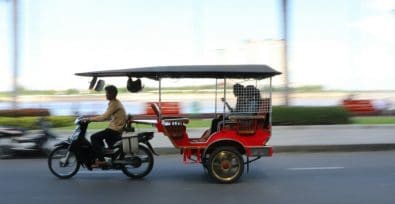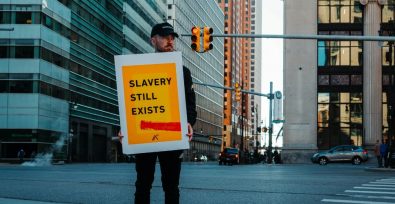A South Korean student was recently found dead in a car in Cambodia, a suspected victim of forced labor. Tragically, he is just one of the thousands lured to the region and then trapped behind the walls of one of the many cyber-scam compounds that dot the surrounding jungles. It’s a crime narrative that’s becoming so common, it’s like a script for modern slavery.
Summer holiday gone wrong
It was mid-July when Park Min-ho left home telling his family he was attending an exhibition in Cambodia during his summer holiday. A week later, his family received a ransom call. Two weeks later his body was found in an area known for scam compounds and human trafficking.
Writing about the crime Raphael Rashid stated:
“According to Cambodia’s interior ministry, (Park) died from “severe torture” and showed bruising in many places on the body, based on authorities’ investigation and preliminary autopsy.”
Park’s death underlined the soaring number of kidnappings of South Koreans in Cambodia recently. So much so that South Korean president called for “all-out” diplomatic efforts to protect citizens. But stories like Park’s have become increasingly commonplace. Traffickers promise victims high-paying jobs, confine them in compounds and, using torture, force them to participate in online fraud.
Ubiquitous, lucrative and growing…
Being forced to cyber-scam is certainly one of the fastest growing forms of modern slavery. Amnesty International recently identified at least 53 large-scale scam compounds in Cambodia alone. Compounds in Myanmar, Cambodia and Thailand often full of people being forced to scam under torture.
Sadly, other governments in the region stand accused alongside Cambodia of being complicit in the crime. That’s because the operation is highly lucrative for both the traffickers and unscrupulous actors alike. US federal prosecutors recently seized $15 billion in cryptocurrency from a single scam group that they allege came from the use of forced labor in Cambodia.
Kara Scannell reported about the bust,
“(the gang) allegedly operated at least 10 forced labor camps across Cambodia since 2015 to engage in cryptocurrency investment schemes. Authorities allege they laundered criminal proceeds through the business and paid bribes to government officials to stay ahead of criminal investigations.”
South Korea is now seeking to establish a “Korean desk” in Cambodia made up of its own police officers. This would help facilitate officers working directly with Cambodian police rather than operating via embassy officials as now happens. However, the FBI said authorities “can’t arrest their way out of the problem.” There needs to be greater cooperation between governments and increased awareness of the issue for progress to be made. Sadly for now, large law enforcement agencies like the FBI are only able to focus on the biggest cases.








Freedom United is interested in hearing from our community and welcomes relevant, informed comments, advice, and insights that advance the conversation around our campaigns and advocacy. We value inclusivity and respect within our community. To be approved, your comments should be civil.